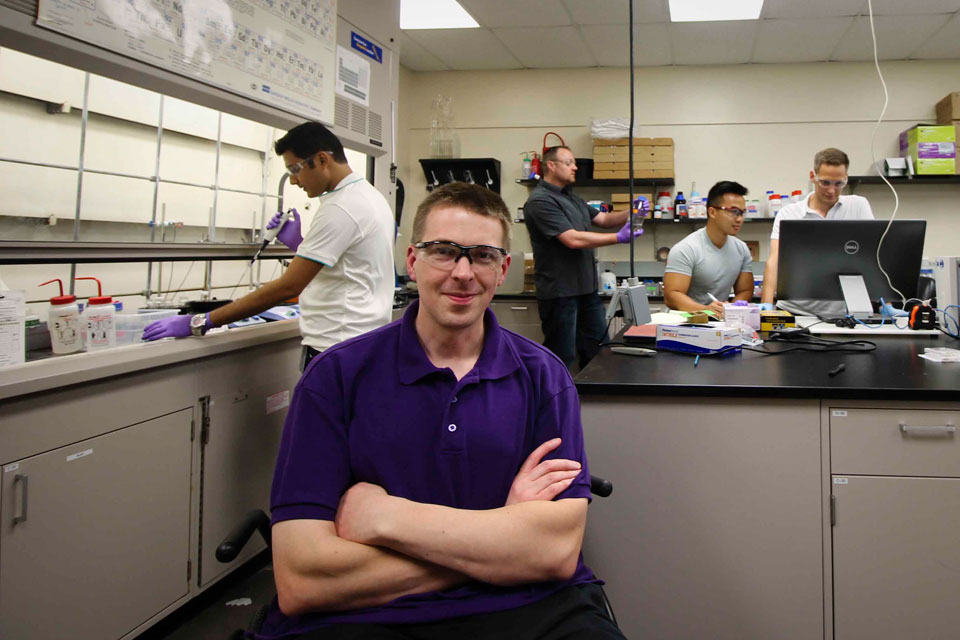Better Living Through Chemistry . . . On Titan
Saint Louis University students and faculty members are looking beyond our planet to answer some of universe’s biggest questions, like how life originates from a mix of chemicals. That’s exactly what Paul Bracher, Ph.D., assistant professor of chemistry in SLU’s College of Arts and Sciences, and his students investigate daily in his lab.
Bracher and his students are currently looking how life might emerge on a moon like Saturn’s Titan, where methane, rather than water, is the dominant liquid.
“We know what life looks like here, and how it evolved here,” Bracher explained. “But what does it look like elsewhere? If we don’t know what to look for, it could exist right under our noses.”
Bracher has received National Science Foundation and NASA funding for his work on the origin of life. His lab is one of 10 nodes of the Center for Chemical Evolution, a national project headquartered at Georgia Tech that focuses on determining how the building blocks of life first assembled into complex biomolecules.
The data we develop is important. If life exists elsewhere in the solar system, our data is informing those missions looking for it"
Paul Bracher, Ph.D.
Learning more about how life’s building blocks like amino acids assemble can ultimately tell us more about how life started on Earth while also guiding future space exploration, Bracher said.
“When you’re sending probes out, you need to know what life might look like and what to look for – what those probes, the landers should be looking for,” Bracher said. “The data we develop is important. If life exists elsewhere in the solar system, our data is informing those missions looking for it.”
Both undergraduate and graduate students work with Bracher as training the next generation of researchers involves getting into the thick of chemical processes and reactions.
“The real world needs people to use these instruments and to read these data,” he explained. “There are just so many aspects to being a scientist and those skills are portable to other disciplines.”


















